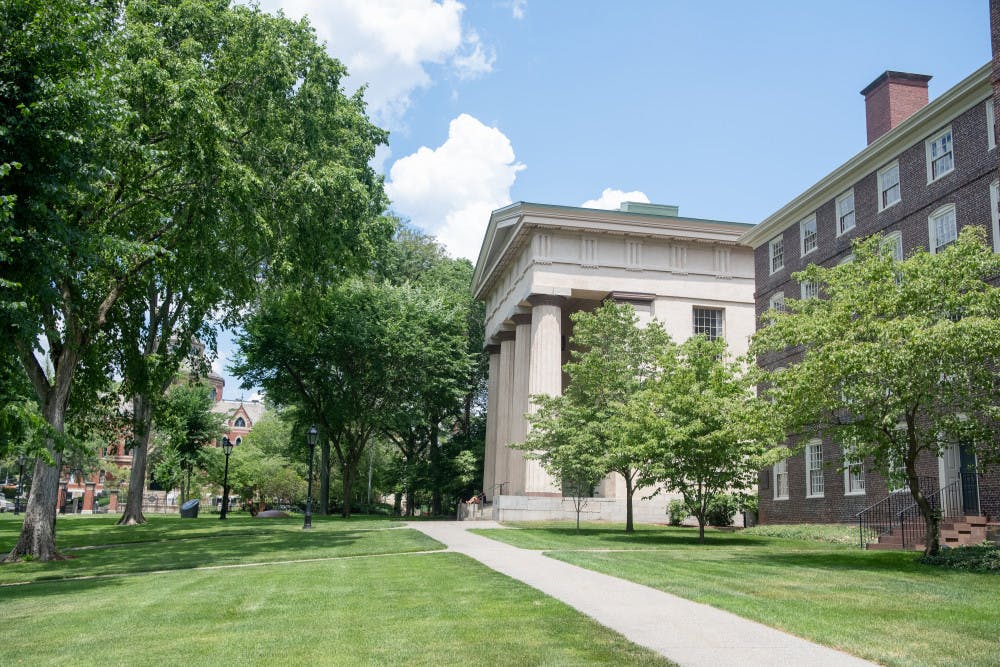Against Racism in Medicine, a coalition which advocates for anti-racist practices in the medical field, released a petition Aug. 11 that calls for monetary compensation for every member of the University’s Task Force on Anti-Black Racism.
In the wake of nationwide protests following the killing of George Floyd by a Minneapolis police officer, the University announced its plans to form a task force to address and work toward dismantling anti-Black racism within and beyond Brown’s campus.
“Asking individuals to volunteer in such an intensive process, when all members likely have other full-time commitments, is dismissive of the burden such work places on each person,” ARM Representatives Isabel Chin MD’23, Praveen Rajaguru MD’23, Neha Reddy MD’23 and Sylvianne Shurman MD’23 wrote in an email to The Herald. The coalition consists of medical and graduate students and alums.
The task force is responsible for submitting recommendations on how to address “bias, structural racism and violence” against University community members of color, particularly Black members, through Brown’s mission of education, scholarship and service, according to a university-wide message. The task force will be composed of faculty, staff, students and alums, including members appointed by the University’s various governance bodies.
The task force will begin convening this month and is expected to submit recommendations to the Office of the President in the spring, according to Shontay Delalue, co-chair of the task force and vice president for institutional equity and diversity.
Like any University board, council or working group, every member of the task force will occupy a volunteer position, Delalue said.
Some students in ARM were “astounded” by the lack of compensation provided for these task force positions, ARM representatives wrote.
The coalition representatives added that “the task of addressing racism, particularly anti-Blackness, is all too often placed on the very individuals that this form of oppression most blatantly harms. People who identify as Black should not be expected to donate their efforts to ‘fix’ the very same systemic forces which continue to oppress them — moreover, they had no role in the creation of these forces.”
Delalue said that appointed positions on University committees, “regardless of the charge of the task force,” are not typically paid.
The Office of the Provost and the Office of Institutional Equity and Diversity will provide funding for research done to advance understanding of structural racism.
Representatives of ARM, which is aiming to garner individual and student group support for the petition, said that the coalition does not believe that research awards are enough to adequately compensate the work to be done by members of the task force.
“This pattern of valuing research production over the time, energy and labor (emotional, intellectual) spent in committee work is both frustrating and disappointing,” they wrote.
Student groups that have signed on to ARM’s petition include Housing Opportunities for People Everywhere, which aims to address structural issues surrounding homelessness and poverty in Providence and Rhode Island.
In explaining the decision to sign on in support of the petition, HOPE Co-Director Dhruv Gaur ’21 said that while most of HOPE’s work focuses on the broader community, the group maintains a responsibility to look inward toward the University’s policies.
“It’s important for the University to better deal with anti-Black racism as an institution but also, it’s important that labor doesn’t go uncompensated and unappreciated,” Gaur said. “Using the labor of Black people and people of color to correct (the impacts of structural racism) — at least that should be compensated if nothing else.”
Undergraduate Council of Students President Jason Carroll ’21 said that the Council supports ARM’s demands and believes that labor should always be compensated.
“The labor of marginalized groups and Black students should be compensated especially when working within (predominantly white institutions) to improve the experience of Black students,” he said.
And while ARM recognizes that the University must take concrete steps to dismantle anti-Black racism, ARM representatives wrote that “it is difficult to put so much faith in these reactionary efforts by institutions that have long profited from racist practices.” The representatives also cited underrepresentation of student voices as a fundamental flaw in task forces and committees.
“While we do not believe the Task Force will be the answer to fully dismantling anti-Black racism at Brown,” they wrote, “we certainly believe those engaging in this work should be compensated for their efforts.”

ADVERTISEMENT




